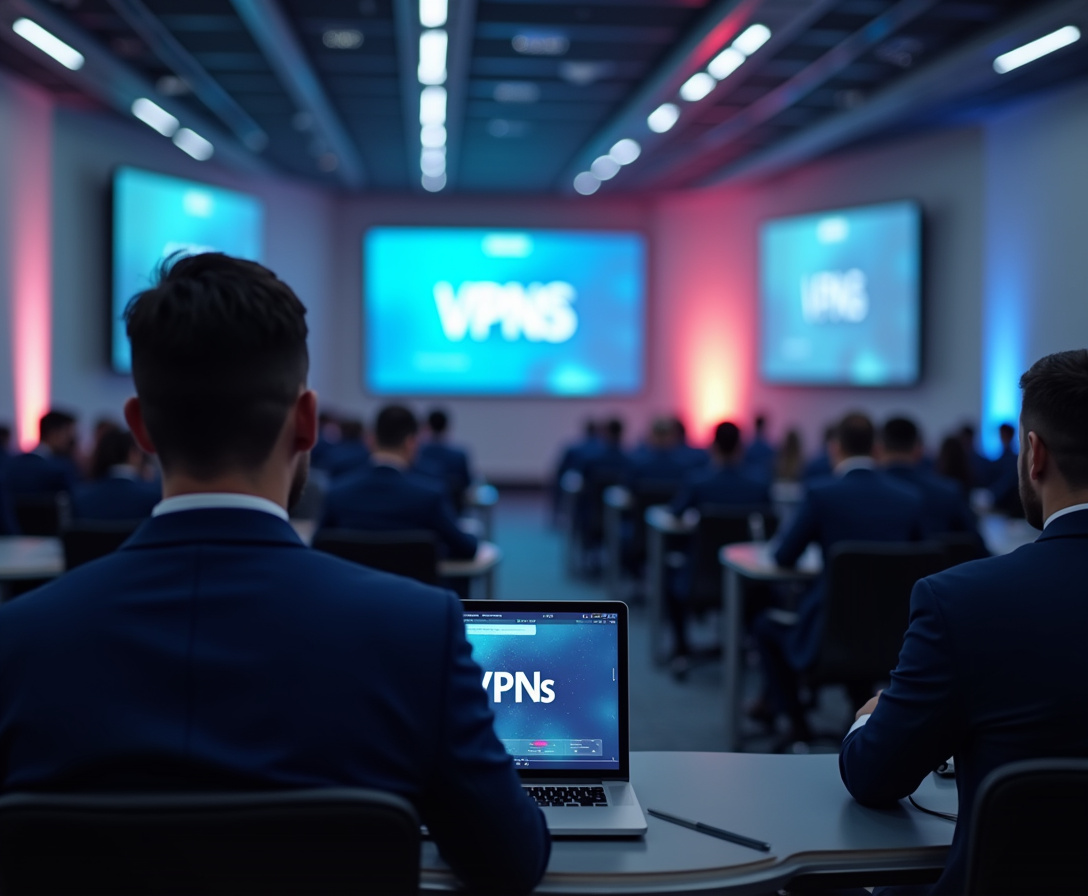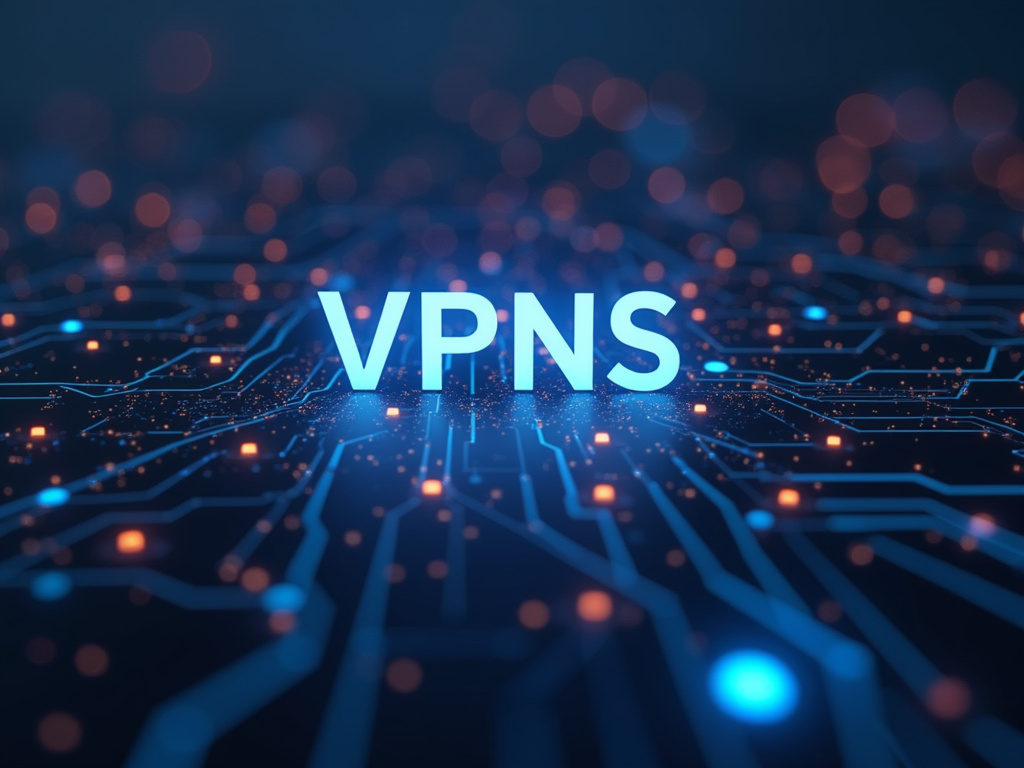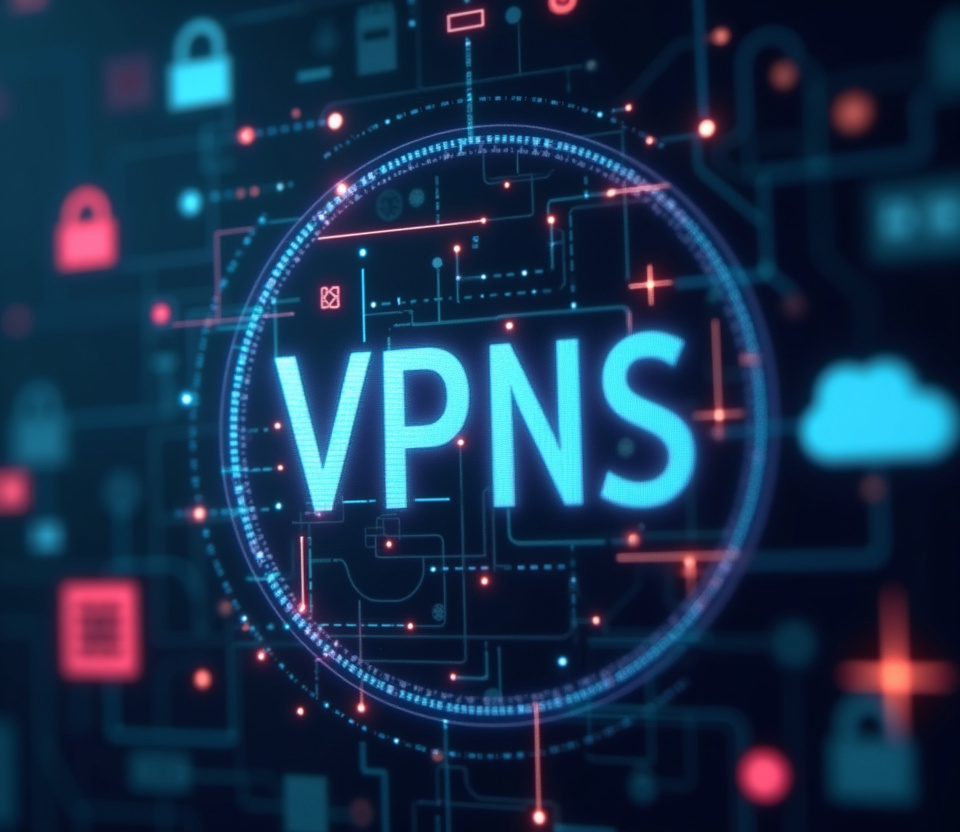VPNs for Tech Conferences: Ensuring Secure Networking

Table of Contents
Navigating the Unsecured Networks of Tech Conferences
In today's interconnected world, tech conferences have become vital hubs for innovation, collaboration, and knowledge exchange. These events bring together industry leaders, developers, researchers, and enthusiasts, creating a dynamic environment for networking and idea sharing. However, the very nature of these conferences, with their reliance on public Wi-Fi networks and the exchange of sensitive information, also presents significant security risks.
Attendees often connect to unfamiliar networks, share personal and professional data, and engage in communications that could be vulnerable to eavesdropping or interception. This is where the implementation of a robust tech conference VPN strategy becomes paramount. A Virtual Private Network (VPN) creates a secure, encrypted tunnel for data transmission, shielding participants from potential threats and ensuring the privacy and integrity of their communications.
The adoption of VPNs at tech conferences is not merely a matter of convenience; it is a fundamental necessity for safeguarding networking security, upholding participant data protection, and guaranteeing communication privacy. By implementing comprehensive VPN solutions, tech conferences can foster a secure environment that encourages open collaboration and innovation without compromising the safety and confidentiality of attendees. The integration goes beyond simply providing a VPN service; it involves educating participants on its importance, offering readily accessible and user-friendly solutions, and maintaining constant vigilance against emerging threats.
Tech conferences are inherently collaborative environments, where open communication and information sharing are encouraged. However, this openness can inadvertently create vulnerabilities. Attendees often share presentations, code snippets, and other proprietary information over shared networks, increasing the risk of data breaches or intellectual property theft.
Furthermore, the use of public Wi-Fi networks, while convenient, introduces a significant security risk. These networks are often unencrypted and lack proper security protocols, making them easy targets for hackers who can intercept data transmitted over the network. VPNs mitigate these risks by creating a secure, encrypted tunnel for data transmission, effectively shielding participants from potential threats.
When an attendee connects to a VPN, their internet traffic is routed through a secure server, encrypting the data and masking their IP address. This makes it significantly more difficult for hackers to intercept their communications or track their online activity. A robust tech conference VPN strategy should also include measures to protect against phishing attacks, malware infections, and other common cybersecurity threats.
In addition to providing a secure connection, VPNs can also offer features such as ad blocking and malware scanning, further enhancing the security and privacy of attendees. Moreover, the use of a tech conference VPN should be viewed as a holistic approach to security, encompassing not only data encryption but also the implementation of strong authentication protocols, regular security audits, and proactive incident response plans. Emphasizing the benefits of using a VPN can significantly enhance the overall event experience, building trust and fostering a sense of security among attendees.
The increasing sophistication of cyber threats necessitates a proactive approach, making VPNs an indispensable tool in protecting the valuable information exchanged and the crucial connections forged at tech conferences. This proactive stance not only safeguards the immediate security of attendees but also contributes to the long-term reputation and credibility of the conference itself, encouraging future participation and fostering a culture of security consciousness within the tech community. Ensuring a secure and private networking environment is essential for unlocking the full potential of tech conferences as drivers of innovation and progress.
The benefits extend further, encouraging attendees to participate more freely and actively, knowing their data and communications are secure. By providing a safe digital space, conferences can foster a more productive and collaborative atmosphere, leading to greater innovation and knowledge sharing among attendees. This, in turn, enhances the overall value and impact of the event, solidifying its position as a leading platform for technological advancement.
Choosing the Right VPN Protocol for Optimal Security
The foundational aspect of any VPN solution for tech conferences lies in its ability to provide robust encryption. Encryption transforms easily readable data into an unreadable format, effectively scrambling the information and preventing unauthorized access. This is particularly crucial when conference attendees are using public Wi-Fi networks, which are notorious for their lack of security.
Without encryption, data transmitted over these networks is vulnerable to interception by malicious actors who can easily eavesdrop on communications, capture login credentials, and steal sensitive information. A tech conference VPN employs advanced encryption algorithms to create a secure tunnel, ensuring that all data transmitted between the user's device and the VPN server is protected from prying eyes. However, it is important to understand that not all encryption methods are created equal.
Strong encryption, such as AES (Advanced Encryption Standard) with a key length of 256 bits, is significantly more secure than older or weaker encryption protocols. The choice of encryption method is therefore a critical factor in determining the overall security of the VPN connection. AES-256, for instance, is considered virtually unbreakable with current computing technology, requiring immense computational power to crack.
Implementing such robust encryption ensures that even if a hacker were to intercept data transmitted over the VPN connection, they would be unable to decipher it. This level of security is paramount for protecting sensitive information such as login credentials, financial data, proprietary code, and other confidential communications exchanged at tech conferences. Beyond strong encryption, the selection of a secure VPN protocol is equally crucial.
Protocols like OpenVPN, IKEv2/IPsec, and WireGuard offer varying levels of security and performance, and choosing the right one depends on the specific needs of the conference and its attendees. Each protocol utilizes different encryption algorithms and security features, and it's essential to select one that provides a balance between security, speed, and compatibility with various devices and operating systems. OpenVPN, known for its reliability and security, is often a preferred choice, while WireGuard, a newer protocol, offers improved speed and efficiency.
However, regardless of the protocol chosen, the strength of the encryption remains a fundamental element in securing data transmission. In addition to encryption, a VPN also masks the user's IP address, providing an additional layer of anonymity. The IP address is a unique identifier that can be used to track a user's online activity and location.
By routing traffic through a VPN server, the user's actual IP address is concealed and replaced with the IP address of the VPN server. This makes it much more difficult for websites, advertisers, and other entities to track the user's online behavior. This feature is particularly valuable at tech conferences, where attendees may be accessing a variety of unfamiliar websites and services.
The anonymity provided by a VPN can help protect against targeted advertising, profiling, and other forms of online tracking. Furthermore, a reliable tech conference VPN service should also include a strict no-logs policy, meaning that the provider does not collect or store any data about the user's online activity. This ensures that even if the VPN server is compromised, there is no record of the user's browsing history, connection times, or other sensitive information.
The combination of strong encryption, IP address masking, and a strict no-logs policy provides a comprehensive security solution that protects the privacy and confidentiality of tech conference attendees. In order to maximize protection of networking security, participant data protection, and communication privacy, it is imperative to educate all conference participants on how to actively use these technologies while connected to the conference network, this includes both wired connections and wireless connections. Comprehensive training sessions and readily available support resources are crucial for ensuring widespread adoption and effective utilization of the VPN solution, further bolstering the overall security posture of the event.
Selecting a Trustworthy VPN Provider: Due Diligence is Key
Selecting the right VPN protocol is another critical aspect of ensuring networking security at tech conferences. Different VPN protocols offer varying levels of security, speed, and compatibility. Some of the most common and secure VPN protocols include OpenVPN, IKEv2/IPsec, and WireGuard.
OpenVPN is a highly versatile and widely-used protocol that supports a variety of encryption algorithms and security features. It is known for its strong security and reliability, making it a popular choice for VPN providers and users alike. IKEv2/IPsec is another robust protocol that is often used in enterprise environments.
It offers a good balance of security and speed, and is particularly well-suited for mobile devices due to its ability to quickly re-establish connections after interruptions. WireGuard is a relatively new protocol that is gaining popularity due to its speed and efficiency. It uses state-of-the-art cryptography and is designed to be lightweight and easy to use.
While WireGuard is still under development, it shows great promise as a secure and performant VPN protocol for tech conferences. When choosing a VPN protocol for a tech conference, it is important to consider the specific needs and requirements of the attendees. Factors to consider include the devices that will be used, the level of security required, and the desired speed and performance.
It is also important to ensure that the chosen protocol is compatible with the VPN service and the operating systems of the attendees' devices. For instance, OpenVPN is widely compatible with various operating systems, including Windows, macOS, Linux, Android, and iOS, making it a versatile choice for events where attendees use a diverse range of devices. IKEv2/IPsec is particularly well-suited for mobile users, as it can quickly re-establish connections when switching between different networks, ensuring seamless connectivity throughout the conference venue.
WireGuard, with its focus on speed and efficiency, can be a valuable option for attendees who require high-bandwidth access for activities such as video conferencing or large file transfers. In addition to selecting the right VPN protocol, it is also important to configure the VPN client properly. This includes enabling features such as a kill switch, which automatically disconnects the user from the internet if the VPN connection drops, preventing unencrypted data from being transmitted over the public network.
Another important configuration option is DNS leak protection, which prevents the user's DNS requests from being sent to their ISP's DNS servers, ensuring that their online activity remains private. Furthermore, it is essential to ensure that the VPN client is up-to-date with the latest security patches and updates, as outdated software can be vulnerable to exploits. Comprehensive documentation and user-friendly interfaces are also crucial for making the VPN solution accessible to all attendees, regardless of their technical expertise.
Providing step-by-step guides and readily available support resources can significantly improve adoption rates and ensure that attendees are able to effectively utilize the VPN to protect their online activities. The protocol must also be considered according to the location of the user when implementing a tech conference VPN, as networking security, participant data protection, and communication privacy will all respond differently. Choosing a protocol that can offer alternatives is vital to maintaining security standards.
VPNs for Services: Enhancing Security and Privacy for Online Platforms
Beyond the technical implementation of a VPN solution, effective participant data protection at tech conferences requires a focus on user education and awareness. Many attendees may not be fully aware of the security risks associated with using public Wi-Fi networks or the importance of protecting their personal information online. Therefore, it is crucial to provide clear and concise information about the potential threats and the steps that can be taken to mitigate them.
This can be achieved through a variety of channels, including pre-conference communications, on-site presentations, and readily accessible information materials. The educational materials should explain the benefits of using a VPN in simple, non-technical terms, emphasizing how it can protect their data and privacy while allowing them to fully participate in the conference activities. Demonstrating real-world scenarios can enhance understanding, showing attendees how a VPN prevents eavesdropping or protects against malware infections when connecting to public Wi-Fi, accessing sensitive information, or communicating with colleagues.
Furthermore, the educational efforts should extend beyond simply explaining the technical aspects of VPN usage. It is equally important to raise awareness about other cybersecurity best practices, such as using strong passwords, being cautious of phishing emails, and keeping software up-to-date. Integrating cybersecurity training into the conference program can enhance attendee awareness.Interactive workshops, panel discussions, and demonstrations can engage attendees.
Gamified learning experiences can be used to raise awareness while providing valuable insights into practical security measures that can be implemented during and after the conference. Encouraging attendees to practice safe browsing habits, such as verifying website URLs and avoiding suspicious links, are also essential components of a comprehensive security awareness program. Moreover, the conference organizers should provide ongoing support and assistance to attendees who have questions or encounter issues with the VPN service.
This can be achieved by setting up a dedicated help desk or providing online support channels where attendees can seek assistance from technical experts. Rapid and effective support can alleviate any anxieties or frustrations, ensuring attendees feel comfortable and confident in using the VPN solution. Creating a culture of security consciousness among attendees is paramount for the success of any participant data protection initiative.
By emphasizing the importance of security and providing the necessary tools and resources, conference organizers can empower attendees to take control of their online safety and protect their personal information. To nurture this culture, encourage security-focused discussions and knowledge sharing among attendees. Organize informal gatherings where attendees can share security tips and discuss their experiences with online threats.
Implement a feedback system for attendees to report suspicious activities or potential security vulnerabilities, fostering a collaborative environment for threat detection and response. Regularly communicate security updates and policy changes to attendees, keeping them informed about potential risks and best practices for protection. Promoting a culture of security reinforces that data protection is a collective responsibility, and empowers attendees to actively contribute to safeguarding their online experience and maintaining a secure conference environment.
Combining technological safeguards with comprehensive user education fosters proactive networking security, participant data protection, and communication privacy.
In conclusion, the implementation of a robust VPN strategy is not merely an option but a necessity for ensuring secure networking at tech conferences. By prioritizing communication privacy and focusing on VPN for events strategies conference organizers can foster environments where innovation thrives without compromising the safety and confidentiality of attendees. The key elements of such a strategy include selecting strong encryption protocols, configuring VPN clients for optimal security, educating attendees about potential threats and best practices, and providing ongoing support and assistance.
The combination of these elements creates a comprehensive defense against cyber threats, protecting sensitive information and enabling attendees to participate fully in conference activities. A lasting security posture is one that is continually assessed for optimal and enhanced capabilities to address all aspects of networking security, participant data protection, and communication privacy. VPNs act as a shield, protecting users from potential eavesdropping and data breaches while using public Wi-Fi networks.
Encryption transforms sensitive data into an unreadable format, making it virtually impossible for hackers to intercept and decipher. By masking IP addresses, VPNs further enhance anonymity, preventing websites and advertisers from tracking online activities. A strict no-logs policy ensures that no user data is collected or stored, even if the VPN server is compromised.
Beyond providing secure communication, VPNs foster an environment of trust and confidence among participants, leading to more open discussions and valuable knowledge sharing. By allowing attendees to focus without fear of compromise, conferences amplify their impact as environments of collaboration and innovation. Moreover, tech conferences should continuously adapt their security measures to address emerging threats and maintain a robust defense.
Regular security audits can identify potential vulnerabilities and ensure that the VPN solution is functioning effectively The audit should provide a basis for the identification of gaps or weaknesses in the current security protocols, as well as serve for recommendations for improvements. Performing those audits regularly, conference organizers can identify and remediate vulnerabilities before they are exploited by malicious actors, maintaining a strong security posture. Staying abreast of current cybersecurity trends and implementing best practices is also essential for staying ahead of potential threats and maintaining a proactive security culture.
In addition to the steps outlined above, tech conferences can take other measures to further enhance networking security. These include implementing network segmentation, which isolates different parts of the network to limit the impact of a potential breach, and using intrusion detection and prevention systems to identify and block malicious activity. By implementing these measures, tech conferences can create a layered security approach that provides multiple levels of protection against cyber threats.
In this holistic approach, the VPN is implemented as only one component in a complex web of safety measures that offer maximal security. The creation of a community of security awareness means that tech conferences will be able to continue to promote excellence in innovation in a world where networking security has become increasingly important, and participant data protection must be taken seriously. The long-term reward is one of communication privacy as a means to increase interaction and create collaborative work that can foster the best of technological advancements.
Stay Updated
Get the latest VPN news, tips, and exclusive deals to your inbox.




